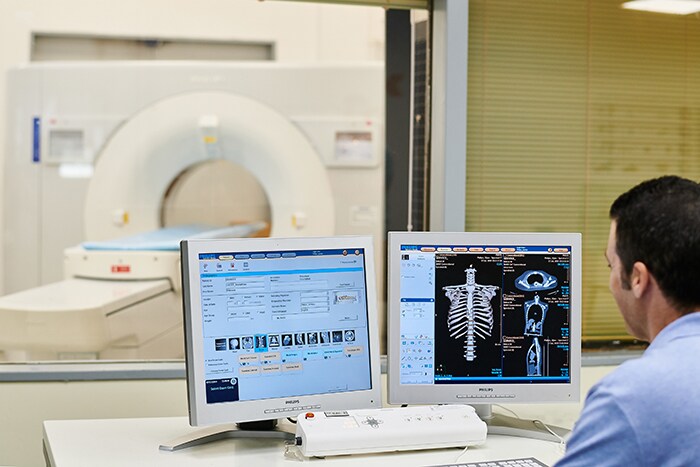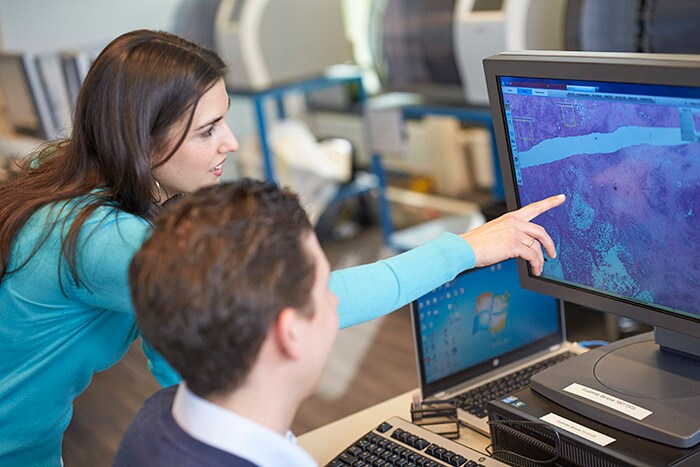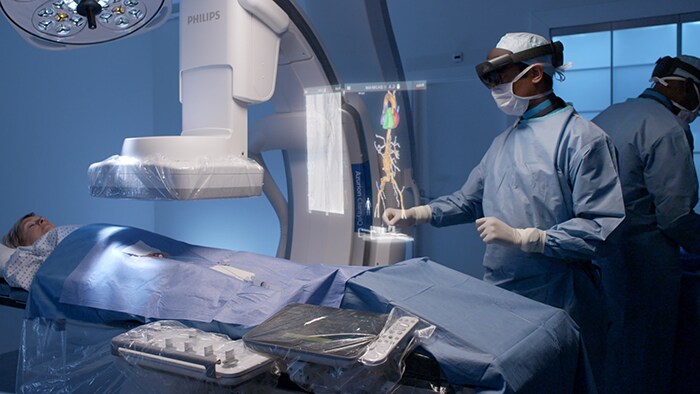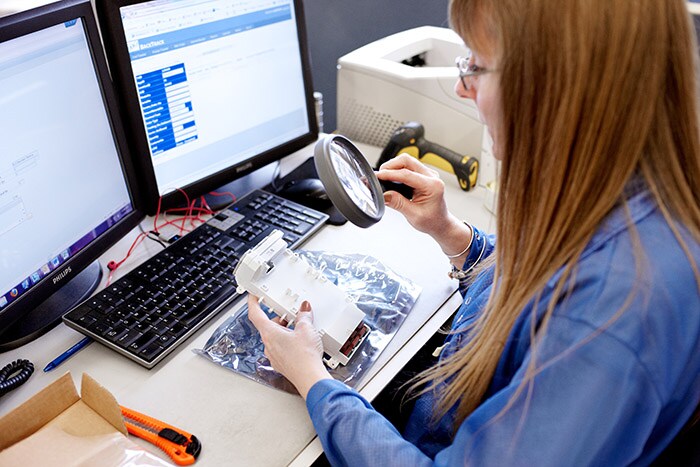Blog
Article by Ben Dickson, BDTechTalks
Why it’s a great time to be a data scientist at a big company
One of the common characteristics among longstanding companies that have managed to survive and thrive in the age of constantly evolving technologies is the correct use of data science, data engineering, and machine learning. The ubiquity of internet connectivity and advances in artificial intelligence are providing organizations with unprecedented potential to capture value, learn, and develop solutions that solve real problems. But these organizations need talented data scientists, data engineers, and machine learning/AI engineers to turn that potential into real opportunities. Data scientists, on the other hand, can learn a lot and hone their skills by working at big companies that have the infrastructure to build AI factories that turn data into real-world success.
Data science IRL
As any experienced data scientist will tell you, there’s a big difference between doing academic and research work in universities and educational institutions and working on real-world projects. In the former, you’re usually training and testing your machine learning models on data sets that have been cleaned and preprocessed for educational and research purposes. Your input is data, your output of precision and accuracy metrics. The focus in these environments is to learn and to push the limits of science. Academic research in machine learning creates the backbone of a lot of the applications we use every day.

But when it comes to creating real-world applications, tools that people will use in their everyday lives, different challenges arise. Data can be scarce, hard to collect, fragmented, or non-existent. Data scientists need the help of skilled database engineers to create consolidated stores of data to train and test machine learning models. On the other hand, the problem might not be very well defined. Machine learning algorithms and models will have direct impact on people’s lives or the way your organization operates. Whether it’s supporting a radiologist with a diagnosis using CT scans or managing supply chains and leveraging AI to make better forecasts and planning, data scientists need the help of domain experts to define the right criteria and metrics for success and failure and to separate the wheat from the chaff. Finally, machine learning models will have to be integrated in applications, APIs, web portals, and delivered on scale to a wide variety of actors and across different geographical regions. All of these challenges require the help of software engineers, UI/UX designers, IT experts, and more. Data science at scale and in real life is very rewarding and will provide aspiring data scientists with unique opportunities to put their skills and talent to productive use. But it also needs to be done in the right ecosystem and in the right company, which is what you’ll find at big companies that have brought the necessary pieces together.
Harnessing the explosion of data

One of the driving factors that is increasing demand for data scientists is the growing power to collect data from the physical world. We can see this in a wide range of areas that digitization had not penetrated before. “In the field of manufacturing we see quite some trends in Industrial IoT (IIot). Just like its ‘normal’ counterpart, this is all about connecting industrial devices, ranging from large-scale production equipment to things like collaborative robots (Cobots), Automated Guided Vehicles (AGV’s) but also energy monitoring solutions to allow for more efficient energy usage,” says Bas Tijsma, Senior Engineer and Manufacturing IT expert at Philips. Tijsma adds that the trend of connecting and digitizing industrial environments will grow with the advent and expansion of 5G networks, which can provide robust connectivity in factory floors. “5G is also helpful for bringing information back to the operators and supporting engineers; data that they could only access from their office PC can now be easily streamed to the shop floor (or home),” he says. We can see similar trends in many domains. In health care, for instance, from personal gear to hospital equipment, there’s more connectivity and data-collection capability than ever before, which creates unprecedented opportunities for applications of data science. “The evolution in health care technology in robotics, genomics, medical devices, IoTs, fitness wearables in the last decade plays a key role in the growing demand for data scientists,” says Priyaranjan Dhar, Talent Intelligence Data Scientist at Philips. Another example is the insurance industry, where service providers can use IoT technology such as telematics devices in cars and smart home sensors to better assess risks and provide personalized premiums to clients. There are now many startups that are leveraging data science, machine learning, and IoT to provide insurance services in previously uncovered areas. But we’re also seeing a shift in established insurance companies such as Lloyd’s, which is engaged in its own data science initiatives and is also helping nurture the fledgling insurtech space. Brick-and-mortar retail is another are that has had to adapt to the age of digitization and artificial intelligence. One of the great examples is Walmart, which is now fast busy acquiring data scientist and AI talent to keep up with Amazon, Alibaba, and other companies that started out as e-commerce platforms but have become hi-tech omnipresent retailers. Meanwhile, retailers that failed to adapt have had to cede their position to tech-oriented upstarts. The most prominent example is Sears, which filed for bankruptcy in 2018 after more than a century of operation. There are scant areas that have not been impacted by data science. “Data science is already playing a crucial role in all the areas one can think of. Wearables have helped save lives by constantly tracking vital signs and signaling if there are any anomalies. IoT, smart sensors, 5G have found applications in self-driving vehicles and in fully automating the retail purchase experiences (Amazon Go stores),” says Karthik AV, Senior Manager and Data Scientist at Philips. At big tech companies where the technical infrastructure is in place, data scientists will find the opportunity to put this vast store of data to good use and turn it into actionable insights. When starting work at Philips, Tijsma, who has a background in mechanical and industrial engineering, was amazed at the sheer amount of IT systems that was at his disposal, and he quickly learned to use them to improve production performance at manufacturing plants. “I’ve always had a thing for optimizing systems so that quickly became part of my work. After having done several industrialization projects we realized we had lots of data, but only used it for troubleshooting purposes, after the event had already occurred and basically too late. This lack of predictability was essentially the start of one of the first data science teams in a manufacturing site and it is still my passion today,” he says. “Philips has some of the most advanced production sites in the world where these technologies can be pioneered and tested,” Tijsma says. “One of the advantages is that you work with live data and you can immediately see the results of your work in action.”
Leveraging advances in AI
Philips among the companies that are focusing aggressively on scaling up data science capabilities to improve customer experience, gain competitive advantage, and reduce deficiencies across the entire organization. Philips spends about 50 percent of its 1.8-billion-euro research and development budget on informatics. The company makes sense of its vast stores of data through artificial intelligence and healthcare informatics. Beyond R&D, Philips is leveraging AI and data science in fields such as sales, marketing, IT, supply chain, finance, HR and more. At Philips, multidisciplinary teams of data scientists, engineers, clinical experts, and others collaborate to create AI technologies to improve healthcare decision-making and interventions across the entire care continuum (healthy living, prevention, diagnosis and treatment, home care).

For example, at Philips manufacturing plants, data scientists are applying a wide range machine learning techniques to improve efficiency and cut costs. “There are some very interesting ideas on how to use production data to predict behavior, for example expected life of production tools or predict product quality levels without having to actually do sample tests. We have already implemented several machine learning models in our production systems that allow for advanced analysis and early warning of production deviation, trigger alarms to our operators and even control the settings of the machine to an optimal state,” says Tijsma, who is part of the effort. Another trend worth watching is the application of cutting-edge artificial intelligence research. For instance, many organizations already sit on top of huge volumes of unstructured data such as images, videos, emails, and chat logs, which mostly required human skills for processing and analysis. In recent years, advances in fields such as computer vision and natural language processing have enabled organizations to apply data science and machine learning to this range of data, which provides new venues to create value for customers. “AI is becoming better at understanding and processing human input, like speech, text and human motion,” Tijsma says. “All these inputs need to be processed into valuable insights. Next to the more traditional data science activities there is a high focus on operationalization of data science in a manufacturing environment, where most data is time-series and data quality is unknown. The challenge is to combine all this data into valuable insights, for example to support maintenance and quality with predictive capabilities.” Tijsma is exploring various applications of deep learning in factory environments. “One interesting field is the use of camera systems and image recognition. We see so many application ranging from quality control, to smart safety systems to prevent accidents to monitoring human motion to improve ergonomics,” he says. The Philips machine learning team is already conducting a pilot program where they use artificial neural networks for visual inspection of equipment and items at factories. At Philips Talent Intelligence, where Dhar works, data science is still in the early stages and there is a lot of experimentation and exploration. “A few of the key pipeline projects at Philips Talent Intelligence focus on using NLP on job description data for competitive intel, location clustering, talent clusters, employee engagement and sentiment analysis,” he says.

Philips’ data scientists are also applying their knowledge to make the company’s supply chain more efficient. “Our current focus has been to deploy a custom, state of the art, ensemble forecasting solution starting in select markets and products and gradually rolling out across the entire Philips organization which will enable and support the demand planners,” AV says. “We are leveraging multiple data sources both internal (inventory position, promotions, etc.) and external (Google Search trends, covid-19 mobility, Amazon traffic, etc.) to accurately model the demand patterns with the goal to improve our forecasting accuracy.”
Synergies and expansion
Data science is gradually integrating into many digital and physical domains, starting with software engineering. “While data science and software engineering both involve programming skills, they often are considered as two independent disciplines with different focus areas,” says Lena Jaschke, Competency Consultant in the Software Center of Excellence at Philips. “For some applications this might be true. However, we see the trend towards a vast amount of synergies and a correlation between software and data science capabilities.”

Working with software developers all around the globe, Jaschke has observed that software developers increasingly appreciate the importance of data science skills to support future needs. But the benefits go both ways. “Data scientists can accelerate in their work when applying excellent software craftsmanship,” she says. The integration of data science will only expand in the coming years. “Data science has penetrated many domain of business, and the use cases and applications are evolving every day,” Dhar says. “Data science as a field has now become domain centric. Apart from the technical understanding, in-depth knowledge of the domain and it’s understanding plays a key role in solution development.” Rich digital infrastructures, diversity of talents, and a wide variety of disciplines and activities at big tech companies provide the perfect environment for aspiring data scientists to reach their full potential and find new opportunities to put their skills to productive use. “For anyone who joins Philips as a data scientist, they will have a challenging and rewarding career with the opportunity to use the latest technologies and to interact with experts both within and outside the company,” AV says. Philips is hiring talented data scientists, machine learning engineers, and software developers. Find out more here. This article was originally published on BDtechtalks.com
